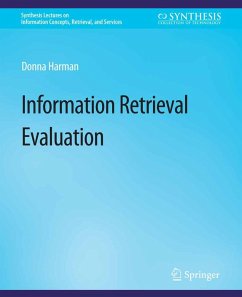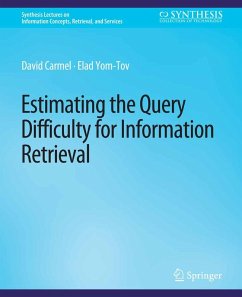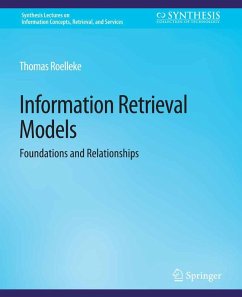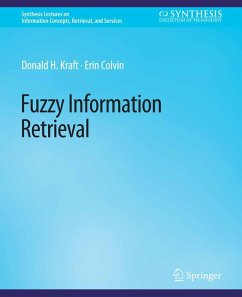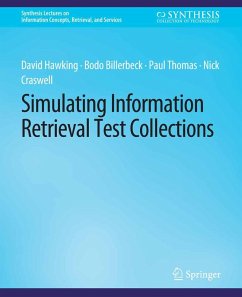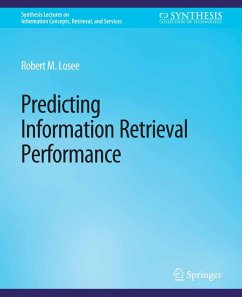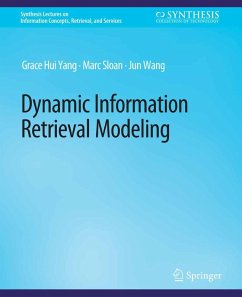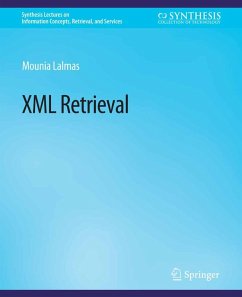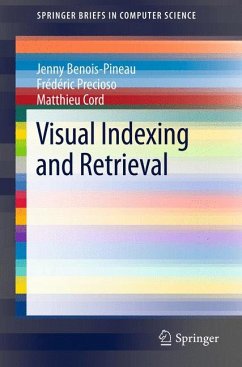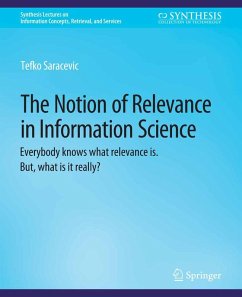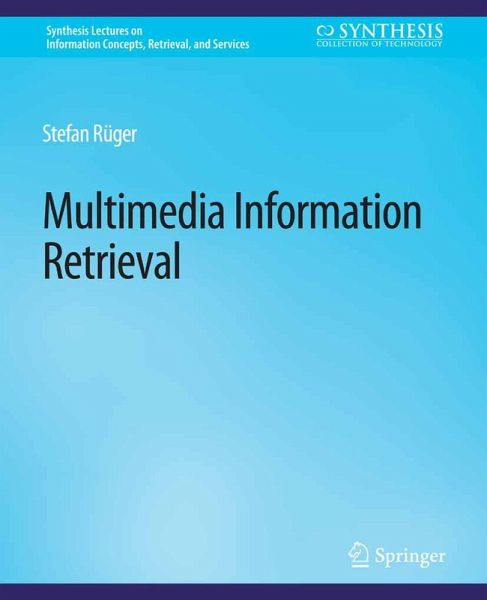
Multimedia Information Retrieval (eBook, PDF)
Versandkostenfrei!
Sofort per Download lieferbar
Statt: 29,95 €**
22,95 €
inkl. MwSt.
**Preis der gedruckten Ausgabe (Broschiertes Buch)
Alle Infos zum eBook verschenkenWeitere Ausgaben:

PAYBACK Punkte
11 °P sammeln!
At its very core multimedia information retrieval means the process of searching for and finding multimedia documents; the corresponding research field is concerned with building the best possible multimedia search engines. The intriguing bit here is that the query itself can be a multimedia excerpt: For example, when you walk around in an unknown place and stumble across an interesting landmark, would it not be great if you could just take a picture with your mobile phone and send it to a service that finds a similar picture in a database and tells you more about the building -- and about its...
At its very core multimedia information retrieval means the process of searching for and finding multimedia documents; the corresponding research field is concerned with building the best possible multimedia search engines. The intriguing bit here is that the query itself can be a multimedia excerpt: For example, when you walk around in an unknown place and stumble across an interesting landmark, would it not be great if you could just take a picture with your mobile phone and send it to a service that finds a similar picture in a database and tells you more about the building -- and about its significance, for that matter? This book goes further by examining the full matrix of a variety of query modes versus document types. How do you retrieve a music piece by humming? What if you want to find news video clips on forest fires using a still image? The text discusses underlying techniques and common approaches to facilitate multimedia search engines from metadata driven retrieval, via piggy-back text retrieval where automated processes create text surrogates for multimedia, automated image annotation and content-based retrieval. The latter is studied in great depth looking at features and distances, and how to effectively combine them for efficient retrieval, to a point where the readers have the ingredients and recipe in their hands for building their own multimedia search engines. Supporting users in their resource discovery mission when hunting for multimedia material is not a technological indexing problem alone. We look at interactive ways of engaging with repositories through browsing and relevance feedback, roping in geographical context, and providing visual summaries for videos. The book concludes with an overview of state-of-the-art research projects in the area of multimedia information retrieval, which gives an indication of the research and development trends and, thereby, a glimpse of the future world. Table of Contents: What is Multimedia Information Retrieval? / Basic Multimedia Search Technologies / Content-based Retrieval in Depth / Added Services / Multimedia Information Retrieval Research / Summary
Dieser Download kann aus rechtlichen Gründen nur mit Rechnungsadresse in A, B, BG, CY, CZ, D, DK, EW, E, FIN, F, GR, HR, H, IRL, I, LT, L, LR, M, NL, PL, P, R, S, SLO, SK ausgeliefert werden.



